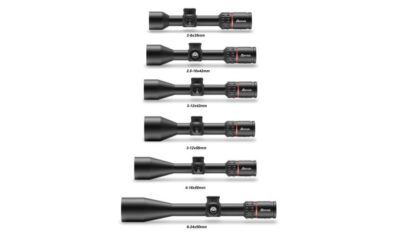Smells Like Infringement
NY Blames Everyone But the Criminal, Part Eleventy

The Rock knows what NY’s been cooking, and he’s not a fan.
Hmm, what’s that smell? Why, it’s infringement!
Some time ago, the state of New York had a list of potential ways to cut down on crimes committed using firearms. Out of the obvious possibilities (holding the criminal responsible with serious prison time for those crimes is one that comes to mind), New York went with a statute that would hold gun manufacturers liable to lawsuits. It’s absurd on its face–it’s like suing Ford because some crazed spree killer decided to drive into a parade. But it gets worse…there’s no provision about the complainant’s legal status. That means it’s possible for a criminal who was shot by a homeowner to sue Smith & Wesson for his injuries. Furthermore, New York’s law is already pre-emptively negated by Federal law. What’s that smell? It’s infringement! The good news is that the National Shooting Sports Foundation is about to hold New York responsible in court. Here’s the latest news from our friends at the NSSF:
____________________________________________________________________
The National Shooting Sports Foundation and a group of fourteen firearm manufacturers, distributors, and retailers filed a lawsuit and moved for a preliminary injunction in federal court today challenging as unconstitutional a New York law designed to blame the industry for the criminal misuse or unlawful possession of firearms in New York no matter where they were purchased.
Specifically, New York’s “public nuisance” law would subject members of the firearm industry to civil lawsuits for the criminal misuse or unlawful possession of firearms in New York. The law would impose liability on industry members for firearms lawfully sold anywhere in the United States that end up being criminally misused or illegally possessed in New York thereby allegedly contributing to a “public nuisance” in the state. Today’s lawsuit challenges the New York law as preempted by the federal Protection of Lawful Commerce in Arms Act (PLCAA). It also challenges the law as unconstitutionally vague in violation of the Due Process Clause of the United States Constitution. The lawsuit further challenges the law as an impermissible attempt by New York State to regulate interstate commerce in violation of the Commerce Clause of the Constitution.
New York is trying to use the threat of crushing liability to coerce out-of-state businesses to adopt sales practices and procedures not required by Congress or the law of the state where they operate. The Constitution reserves the power to regulate interstate commerce solely to Congress. This law interferes with the sovereignty of other states to make policy choices about how firearms should be sold in their state, subject only to the Second Amendment and federal law.
The challenged law permits lawsuits by victims of criminal acts and citizens claiming they have been harmed by an alleged public nuisance in New York. It also allows lawsuits by the State and any local government, like the City of New York. Both New York State and the City of New York were part of a wave of similar lawsuits filed over twenty years ago that led to Congress passing the bipartisan PLCAA in 2005.
The PLCAA codified a bedrock legal principle. Manufacturers and retailers are not responsible for the subsequent criminal misuse or illegal possession of their lawfully sold, non-defective products by remote third parties – criminals – over whom they have no control. Firearm industry members are not legally responsible for illegal shootings any more than a cookware manufacturer is responsible if a criminal misuses a sharp kitchen knife to stab someone.
“This law is not about making our communities safer but rather, as former Governor Andrew Cuomo once proclaimed, to impose on the firearm industry a ‘death by a thousand cuts.’ Today’s lawsuit will end this unconstitutional attack on the businesses, large and small, vital to Americans’ Second Amendment rights,” said Lawrence G. Keane, NSSF Senior Vice President for Government and Public Affairs and General Counsel. “Opening up members of the firearm industry to a torrent of baseless civil lawsuits is – as it was in the past – an effort to impose radical gun control policies by litigating the forceful bankruptcy of companies. New York’s baseless law ignores the fact that members of the firearm industry work cooperatively with federal, state, and local authorities for Real Solutions® to help address crimes involving guns.”
Legal experts such as Professor Jonathan Turley have long defended the merits of the PLCAA pointing out that laws like the one recently passed in New York are “unsound attempts” to distort principles of liability. New York’s law allows the very type of novel tort law actions, including those by New York State and City of New York, struck down by courts two decades ago.
NSSF looks forward to working with the individual plaintiffs and other members of the firearm industry to fight this blatantly unconstitutional New York law and in doing so, uphold the foundations of tort law, fight government overreach, and protect the firearm businesses that lawfully operate and employ over 340,000 of Americans.
For more information on the PLCAA, see NSSF’s Fact Sheet.
-

 Sh*t Anti-Gunners Say1 month ago
Sh*t Anti-Gunners Say1 month agoGreat Big Gobs of Greasy, Grimy Gavin Scum! Newsom Now Says He Respects the 2A
-

 Gun Rights4 weeks ago
Gun Rights4 weeks agoFind Someone Who Loves You As Much As Democrats Love Mass Shootings
-

 Guns Save Lives2 months ago
Guns Save Lives2 months agoIndependence Day Couldn’t Have Happened Without Armed Citizens
-

 2A's Lighter Side2 months ago
2A's Lighter Side2 months agoHappy 50th, Burris Fullfield (Here Come the Spanks and Pinches)!
-

 Breaking News4 days ago
Breaking News4 days agoBrooklyn Shooting: Gun Control Fails, 2A Needed!


